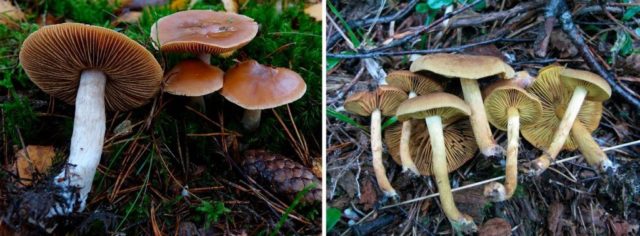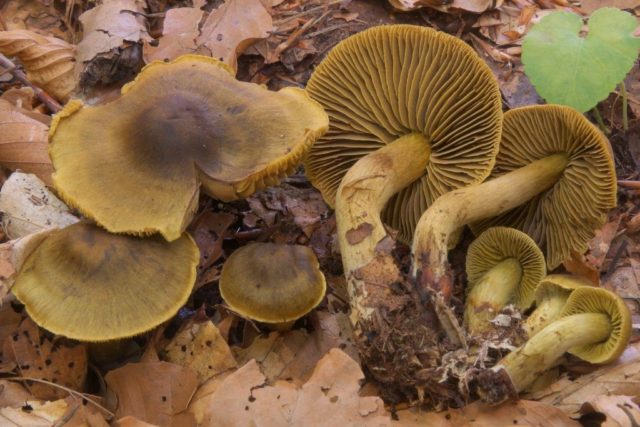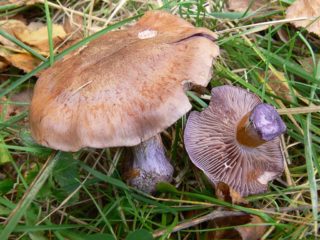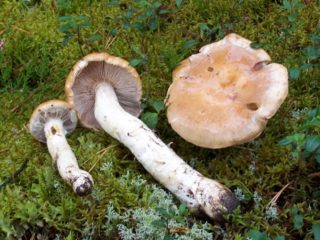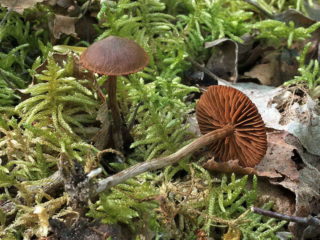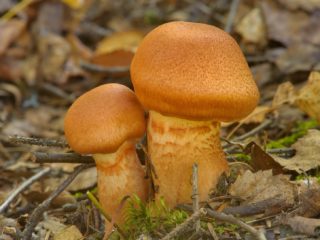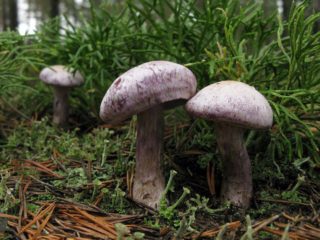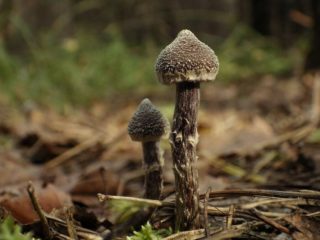Content
Saffron webcap belongs to the webcap genus, webcap family. It can be found under a different name - chestnut brown spider web. Has a popular name - pribolotnik.
Description of the saffron webcap
This species can be attributed to the subgenus Dermocybe (skin-like). Lamellar representative. The body of the mushroom is yellowish-brown in color with a lemon cobweb veil. It features a dry, brightly colored leg and cap. Small in size, massive, neat in appearance.
Description of the hat
The cap is not large, up to 7 cm in diameter. At the beginning of growth, it is convex, over time it becomes flat, in the center with a tubercle. In appearance, the surface is leathery, velvety. Has a brownish-reddish color. The edge of the cap is brownish yellow.
The plates are thin, frequent, adherent. They can have a dark yellow, yellow-brown, yellow-red hue. As they grow older, they become brown-red. The spores are elliptical, warty in appearance, lemon-colored at first, after ripening - brown-rusty.
The pulp is fleshy, does not have an obvious mushroom smell, but this specimen has a radish aroma.
Leg description
The leg is cylindrical in shape, velvety to the touch. In the upper part, the leg is the same color as the plates, closer to the bottom it becomes yellowish or brownish-orange. The top is covered with a cobweb shell, in the form of bracelets or stripes. A yellowish mycelium is visible below.
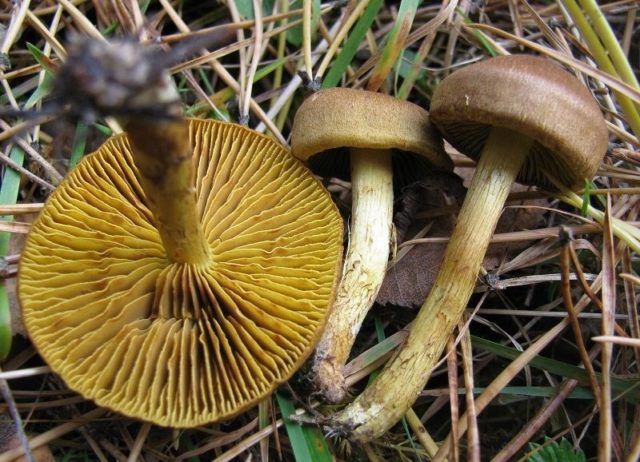
Saffron webcap in the coniferous forest
Where and how it grows
The saffron webcap grows in the temperate climatic zone of Eurasia. Prefers to grow in coniferous and deciduous forests. It can be found near:
- swamps;
- along the edges of roads;
- in the area covered with heather;
- on chernozem soils.
Fruiting throughout the fall.
Is the mushroom edible or not
It is inedible. Has an unpleasant taste and smell. The presence of toxins dangerous to humans has not been confirmed. Poisoning cases are unknown.
Doubles and their differences
Among similar mushrooms are:
- Webcap brown-yellow... It has a brownish spore-bearing layer and larger spores. The leg is lighter. The edibility has not been confirmed.
- Cobweb olive dark... It has a darker color and a brownish-yellowish spore-bearing layer. The edibility has not been confirmed.
Conclusion
The saffron webcap grows in coniferous and deciduous forests. Has a yellowish brown color. No mushroom smell. Sometimes it smells like a radish. Has a number of similar representatives. Not edible.
